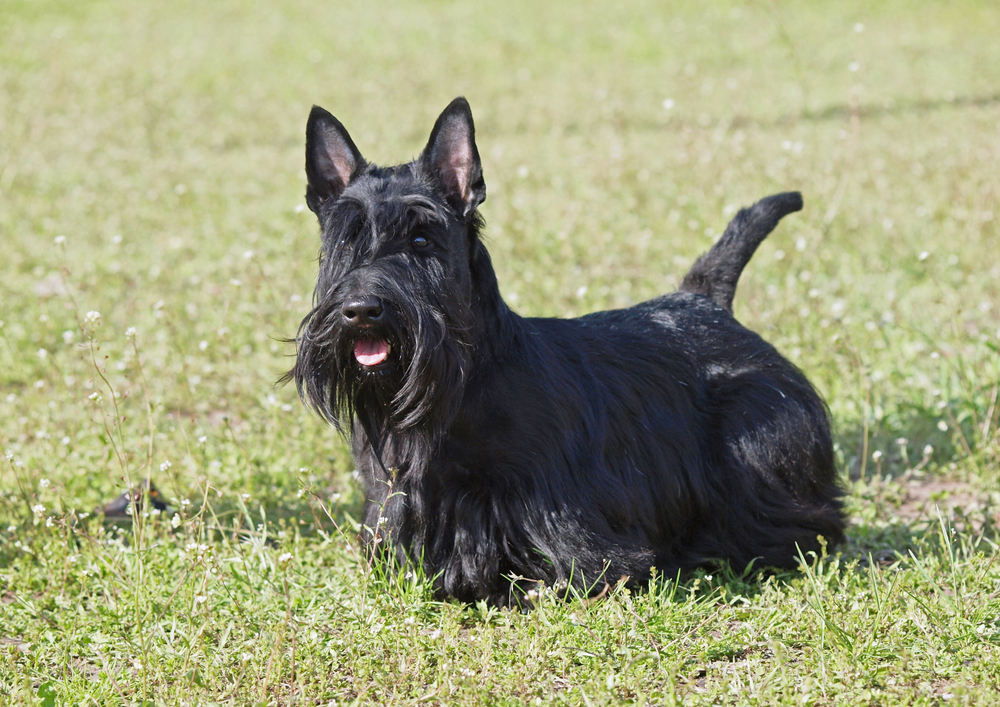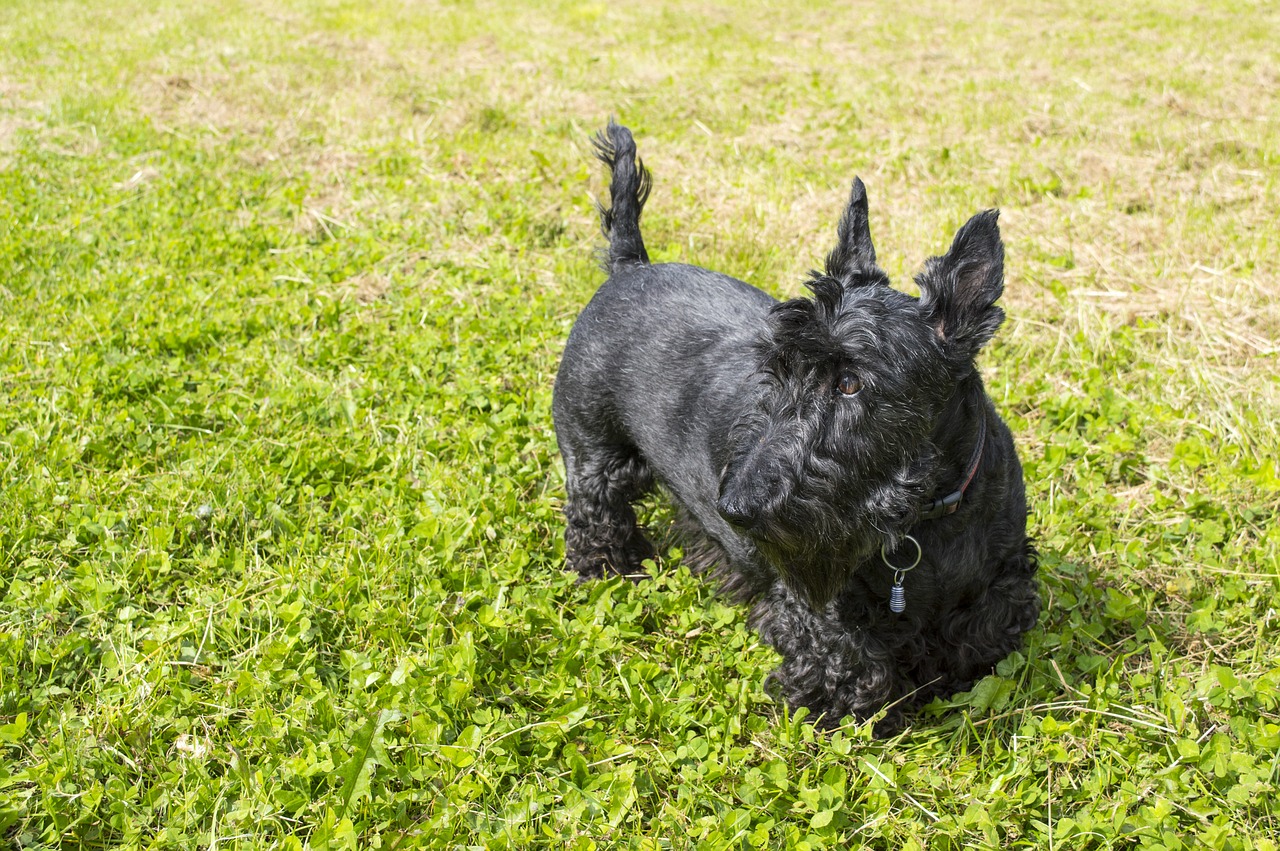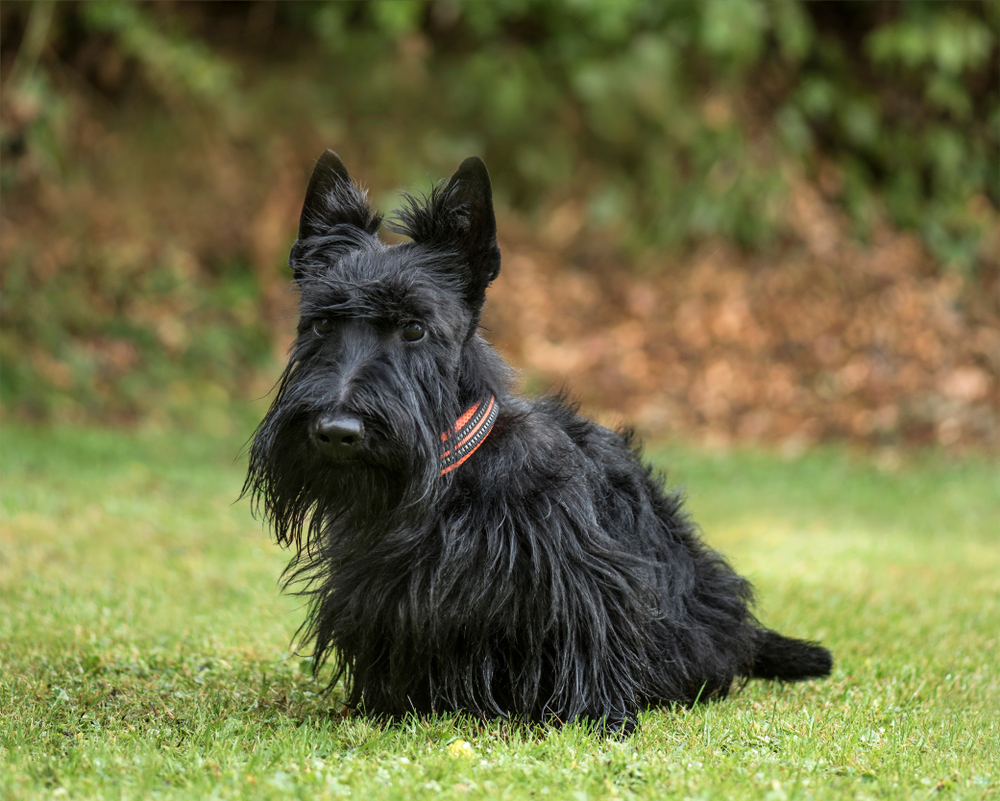In this article
Small dogs are notorious for their larger-than-life barks and attitudes. These breeds may be more vocal than their larger counterparts because they’re trying to compensate for their small size. However, not all small breeds are famed for their barking. Take Scottish Terriers, for example. Scottish Terriers are not particularly known for having excitable, vicious, or yappy traits; however, they will bark if they’re given a reason to. Thankfully, though, even the more vocal Scottie can be trained to stop barking. Read on to learn more about the Scottish Terrier’s inclination for barking and how to address problem vocalizations.

Do Scottish Terriers Bark a Lot?
While Scottish Terriers aren’t as vocal as many of their other small dog breed counterparts, they will bark if they’re given a reason to. They have a powerful bark that can scare away thieves, mail delivery people, predators, and also your friends and family members. A Scottie will not hesitate to bark at the door when someone shows up or if they notice something unusual going on. Their deep bark can make a Scottish Terrier a fantastic, determined watchdog.


How to Address Problem Barking
Of course, not all Scottish Terriers have the same temperament. Each dog will have their own set of personality traits, and one may be more prone to barking than another. If your Scottie barks more than you’d like them to, there are some things you can do to address their vocalization problem.
1. Find the Reason
Before you can address your pup’s barking issue, you need to identify why they’re barking in the first place. Knowing the reason can make addressing the problem much easier.

2. Remove the Trigger
Once you know why your pup is barking, try removing the trigger. For example, if your Scottie goes into a barking frenzy when a visitor comes into your home, you can help them get used to the idea of strangers by spending time socializing them. If they’re barking at people walking by, try keeping your curtains closed.
3. Keep Them Busy
Distraction techniques can sometimes address problem barking. If your Scottish Terrier isn’t getting enough mental or physical stimulation, they may get bored and develop problematic behaviors to relieve their boredom. Make sure your dog has plenty of exercise and playtime built into their everyday life.

4. Ignore Them
Sometimes, Scottish Terriers will bark simply for attention. If you determine that this is the case for your dog, try to ignore them. Constantly responding to their cries will teach your pup that when they bark, they get what they want (attention).
5. Provide Treats and Praise
When your Scottie is barking at something that isn’t a legitimate problem, try to distract them. When they stop barking, offer them praise and a treat. This will eventually teach them that their silence earns them a reward.

6. Hire a Professional
If your Scottie’s barking isn’t manageable with the above techniques, you may want to consider hiring a dog trainer or behaviorist to help. These experts can work with you and your pup to create a positive reinforcement-based training plan to address these issues.

Final Thoughts
While Scottish Terriers aren’t particularly known for barking in excess, some individual dogs may be more prone to vocalizations than others. Most Scotties will bark when they feel they need to, like when someone comes to the door. However, if yours is barking excessively, try some of the recommendations above to address the problem.
Featured Image Credit: Eric Isselee, Shutterstock





















